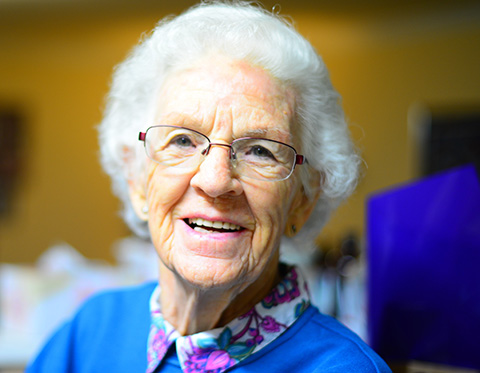Many people living alone can start to feel socially isolated and lonely. Those with a declining memory may also struggle to use or be concerned about using telephones, owing to the number of nuisance calls being made.
This became clear with one of the current users of the Beanbag Care system within the East Riding of Yorkshire pilot. Margaret lives with a moderate level of dementia but has an extremely supportive family which enables her to continue to live independently at home.
Margaret’s son and daughter have been unable to talk to their mother and check on her welfare, as she no longer uses the phone. This has caused concerns for the family as Margaret wouldn’t be able to get help in an emergency by calling them and has resulted in them driving to see her daily to check in on her.

At the heart of every Beanbag Care system is a tablet that can enable communications and aid the reduction of social isolation for all service users, as well as being an easy-to-use way of controlling temperature in the home, calling for help in an emergency via an SOS button, and seeing notifications and events for the day. The system is closed and only those connected, for example Margaret’s son and daughter, can call Margaret, making it a safe and secure way to communicate with loved ones.
With Margaret, we have found the tablet to be an essential component of the Beanbag support. On installation, there were concerns that she wouldn’t be able to use the tablet successfully, but quickly found that Margaret was able to interact and engage with the tablet, by pressing a picture of her daughter, she has been able to call her via video. This has opened communications for the family and limited the risk of Margaret having to deal with sales and potential fraudulent calls.
The tablet also has a clear and bright SOS button on the main screen, making it simple to call for help in an emergency. The Beanbag care system has not only provided the extra layer of security for Margaret but has also reduced anxieties and stress on her loved ones as they know she can call for help when needed. It has also opened a channel of communication between them, meaning they can talk more frequently.
This means that Margaret’s son and daughter can make fewer trips to Margaret’s home to provide a welfare check, reducing the costs of travel and emissions, and giving Margaret’s son and daughter more time to work and interact in their daily activities, knowing that Margaret is safe and can
contact them if needed.
Please note all names used in this case study have been changed to protect the identity of the service user.